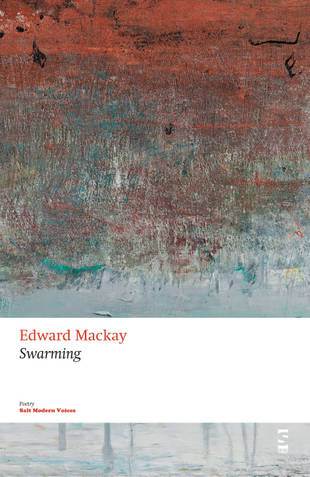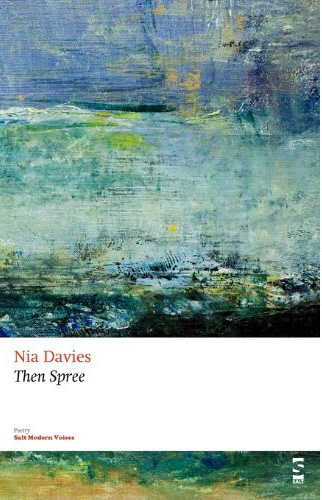Chris Paul delves into a new series of books, Salt Modern Voices, in his review of Edward MacKay’s Swarming and Nia Davies’ Then Spree.
The poet Michael Heller once said, ‘poetry is the ground where the subjective meets the objective.’ It is possible using this quote to place many kind of concepts into a field of opposites: the public versus the private, the artistic versus the scientific, or the rational versus the superstitious. Poetry intercedes on behalf of language in among these tensions, to explain itself in the awkwardness where the internal encounters the external. In their particular and pretty ways, as part of the Salt Modern Voices series, Nia Davies and Edward MacKay explore these dynamics – but in contrasting fashions.
In some respects Edward MacKay is the easier of the two poets to deal with in the body of one review. His work is drive, ego, passion, curiosity, and cultural pluralism projecting itself outward ‘like a Johnny Cash bassline down the Old Kent Road / stopping to show its paws – heavy in their absence of claws – to question mark women / who nod as they pass.’ His projections comprise broad and transient influences from DC Comics, raw mythology, Leviticus, or John Peel. While sometimes vivid and personal, like a ‘Phantasy of Flesh’, or ‘red rings drying in a wine glass’, Mackay’s projected subjectivity takes steps back, giving room for the reader to take man size gasps of thoughtfulness and reflexivity.

by Edward MacKay
Included in Swarming are two poems with a visual aspect which look quite beautiful on the page – ‘The Size of Wales’ and ‘The Fall Alone’. Figuratively representing a map of Wales and the interior of a tube train carriage respectively, both poems use line break and indentation to good effect. The use of formal innovation distances the lyric from narratives of the poet’s self. Throughout Swarming however there is a vitality and intellectual restlessness that lifts it beyond the merely autobiographical.
On the other hand the self doesn’t surface much in Nia Davies’ Then Spree, at least not obviously – certainly not after the first couple of poems in the collection. These works are more about the psyche of the inner ear, a gentle process of concentration, filtration, to intonation. Davies shuts all out to the moment, and the fragment, she does metaphor slowly and gently. In ‘Barge In The Slug Of Snow’, for example, we come to learn, almost intuitively, how ‘the city shunts its empire of /organisms though a humid system’ through the poet’s chance encounter with a barge and its ‘coiled bulb filament – spindled wires’. In ‘The Gun’, a poem about a pub in London’s Docklands, we witness the concurrence of a decaying past and an insubstantial present. A ‘disembodied wharf’ resides against ‘the ever advertising dome that project / folly’. Best ‘Let it burn’ the poem concludes. Despite being attuned, seemingly channelling her environment at times, these are not occult invocations, there is a grounding familiarity of reference, with occasional pilchards, u-bends, and petrol blooms making unexpected appearances. There is a controlled awareness of metre, part submerged in the poems’ structures: ‘Oh buffeted swan and seer of seas. Oh sounder of dink and clink.’ These are skeleton structures with a wide sea of uncertainty and language lapping at its edges, with the poet in the middle somewhere, voicing.

by Nia Davies
Both Davies and Mackay acknowledge the influence of Roddy Lumsden’s Wednesday Group workshop upon their poems, and share similarities with one another despite ostensible contrasts of approach. Both are prepared to abandon neat story-telling and narrative quick fixes, revelling faithfully and often effectively in the belief that poetry can do much that is different to prose. Both exert formal reverence while at the same time being open on the edges to wilder aesthetic and linguistic territories. Both Swarming and Then Spree have a post-modern intellectual precision, and are politically tuned-in while not ideologically exuberant. Neither poet can be derided as either overtly traditionalist or experimentalist. In this way they are the perfect accompaniment to Salt, their publisher.










